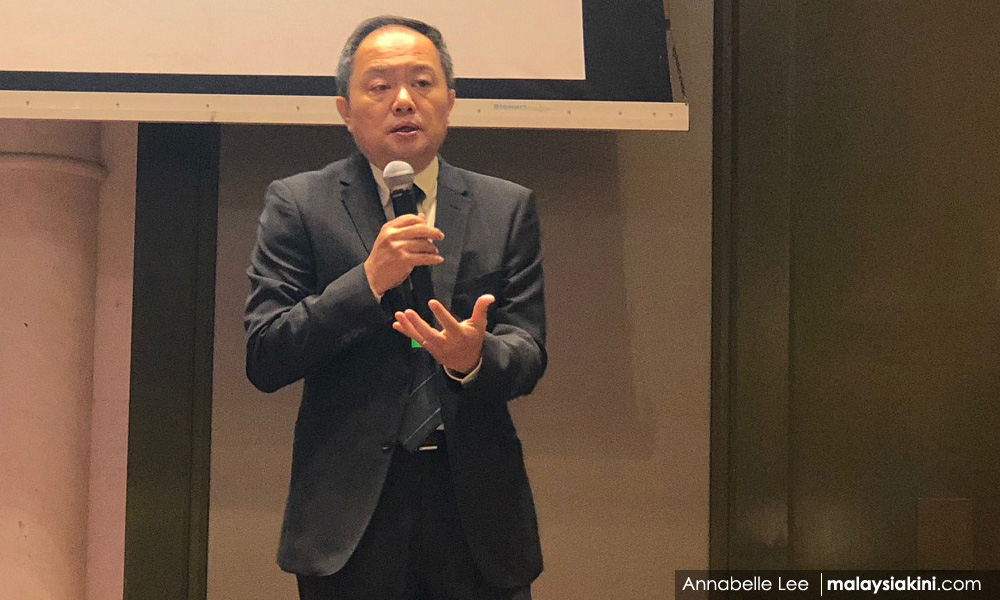
The push to implement local government elections should start at the village level, according to political scientist Wong Chin Huat.
This is because villages tend to be racially homogeneous, and this would help quell the race-based excuses which had been used to defer the reinstatement of local elections for city and district officials.
“If you really want (local government elections) to be done in three years, we need to push for village elections by this year because most villages are mono-communal. Most of them will be Malays, except Chinese villages where there would be Chinese, and a small number would be mixed.
“The moment people get used to voting for their village leadership and you can clearly see that this is between your own people - no one from other ethnic groups stand to win - it will be very hard for you to repeat the lie that more elections are bad,” he said.
Wong said this today during a forum on local council elections held in Petaling Jaya, and he reiterated the same point in the press conference later.
The Penang Institute fellow also proposed holding the first local council elections in places such as Shah Alam where the electorate is overwhelmingly Malay.
“If you dare not take to that, there is only one explanation: You do not want Malays to have the right to choose their leader. It is (about) denying the Malays’ rights; it is not about defending the Malay rights,” he said.
Wong said the true reason why politicians are reluctant to hold local government elections is so that they could appoint party loyalist to city and district council posts instead, hence creating a system of political patronage and reward that they could control.
Nevertheless, he said the racial concerns that had been raised over the reinstatement of local elections must be addressed because people are “stuck in it”.
Previously, Prime Minister Dr Mahathir Mohamad said the government would not reinstate local government elections as promised, warning that the reinstatement could lead to racial conflict and widen the urban-rural divide.
PAS president Abdul Hadi Awang had also raised race-based objections to the reinstatement of local government elections, claiming that it would leave “DAP Chinese” in charge of major cities like Kuala Lumpur, Ipoh, Penang, Seremban, and Johor Bahru.
Bersih chairperson Thomas Fann dismissed these concerns, saying only six out of 153 local authorities have an electorate where Chinese voters outnumber Malays, namely Ipoh, Kuching Selantan, Iskandar Putri, Penang, Sibu, and Subang Jaya.
“In other words, 96 percent are Malay-majority and this includes Petaling Jaya. This is the fact.
“So how could it be that if you have local council elections, most of the urban centres would be controlled and dominated by the Chinese?
“Perhaps maybe in the 1960s, but now we are 50 years on. What has happened is that in the 50 years, urban migration of Malays in the cities has happened in large numbers and is still happening.
“So, that fact is totally incorrect. That fear is totally unfounded, but sometimes politicians use some of these bogeymen, ghosts, to put fear in people that if we have local council elections, we are going to have racial riots,” Fann (photo) told the forum.

Meanwhile, Wong said the Malay anxiety of losing power despite being the majority stems from Malaysia’s first-past-the-post electoral system, which creates a situation where “winner takes all”.
This raises the stakes such that there is anxiety about the Malay votes to being split between different political parties, hence allowing members of other races to take a dominant position.
In contrast, he said such anxiety does not exist in Indonesia where there are greater ethnic diversity and even more political parties to choose from. This is because Indonesia’s political system is such that even small political parties with a modest following can win some power.
Wong also addressed concerns that an effective local government would render state governments and its assemblypersons redundant.
He said this is a legitimate concern as states have very little power, and much of it is related to the work of local authorities.
The solution, he added, is to devolve power that has been concentrated in the federal government to the states, so that state governments won’t have to guard what little power it has so jealously.
Help conduct roadshows
Also at the forum, a representative of Housing and Local Government Minister Zuraida Kamaruddin read out a speech where the minister reiterated her pledge to complete a study on the reinstatement of local government elections in three years.
The speech read out by Zuraida’s special function officer Chua Yee Ling on the minister’s behalf also urged the NGOs present at the forum to help conduct roadshows to educate members of the public on local elections.
However, the NGOs demanded that the government not only complete its study by 2021, but hold the first local council election since its abolition by May 9, 2021 – exactly three years after the 14th general election.
They said the elections are necessary because political appointees have a conflict of interest on whether they serve the interests of the people or their political mentors, and dismissed claims that it would cause racial strife.
“We, therefore, firmly insist that the Pakatan Harapan government should no longer put up excuses or distractions to avoid bringing back local council elections. Any delay will also give the public an increased concern that the Harapan government intends to exploit a weak system of check and balance, thus eroding public trust,” they said.
The statement was endorsed by 60 NGOs, as well and three coalitions representing residents’ associations in Petaling Jaya, Kuala Lumpur, and Penang.
It was read out by MyPJ chairperson Jeffrey Phang, whose coalition represents 40 residents’ associations in Petaling Jaya.
Other endorsers of the statement include SaveKL, Penang Forum, All Women’s Action Society, Islamic Renaissance Front, Tindak Malaysia, and more. - Mkini



No comments:
Post a Comment
Note: Only a member of this blog may post a comment.